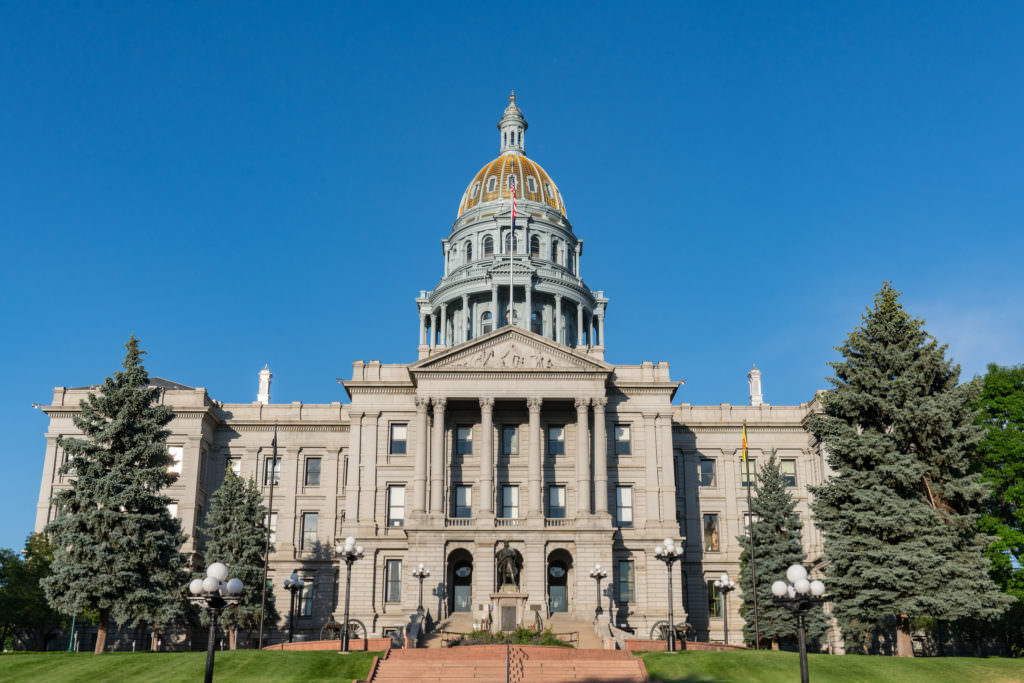On March 25, 2020, Governor Polis issued a statewide stay at home order, which requires people residing in Colorado to stay at home unless they engage in a “necessary activity,” work at a “critical business,” perform a “minimum basic operation” for a business, or engage in a “critical government function.” The order also mandates the closure of all businesses that are deemed to be non-essential during the COVID-19 pandemic. This order followed a previous iteration that required non-essential businesses to reduce their in-office workforce by 50%.
In calling a statewide stay at home order, Governor Polis joined many other states attempting to reduce the spread of the COVID-19 virus by limiting the number of people interacting outside of their homes. The initial order was set to expire on April 11, 2020, but was extended by Governor Polis until April 26, 2020.
What does “stay at home” mean?
The stay at home order requires individuals residing in Colorado to stay at home whenever possible, even if they are not sick or do not believe they have been exposed to the COVID-19 virus. Gatherings of people outside of those in one’s immediate household are prohibited. However, individuals may leave their homes if they engage in a “necessary activity,” work at a “critical business,” perform a “minimum basic operation” for a business, or engage in a “critical government function.”
What is a necessary activity?
Governor Polis’ stay at home order accompanies a public health order, which allows individuals to leave their homes if they engage in a necessary activity. Under the public health order, a necessary activity includes, but is not limited to:
- Engaging in activities essential to one’s health and safety, including, but not limited to, visiting a health care professional, obtaining medical supplies, or obtaining medication;
- Obtaining necessary supplies, including, but not limited to, groceries, food, or household consumer products;
- Engaging in outdoor activities, including, but not limited to, walking, hiking, biking, or running (subject to social distancing requirements);
- Caring for a family member, vulnerable person, or pet;
- Engaging in the delivery of services or products to a critical business or a critical government function.
What is a critical business?
Governor Polis’ stay at home order mandates the closure of every business that is not designated as a critical business. Under the public health order, a critical business includes, but is not limited to:
- Health care operators, including hospitals, behavioral health offices, medical providers, pharmacies, labs, blood banks, and nursing homes;
- Critical infrastructure providers, including railways, utility companies, telecommunications companies, hotels, farms and ranches, and trucking companies;
- Critical manufacturers, such as those that make food, medical equipment, pharmaceuticals, or any product necessary to support a critical business;
- Critical retailers, including grocery stores, gas stations, liquor stores, firearms stores, marijuana dispensaries, and restaurants and bars (take-out/delivery only);
- Critical service providers, such as those providing child care services, building cleaning and maintenance services, automobile repair services, pastoral services, mail and shipping services, and warehouse and freight distribution services;
- News media;
- Financial and professional institutions, including insurance entities, banks, accounting firms, real estate offices, and law firms;
- Construction companies.
These categories are broad and open to interpretation, which may cause unrest for the business community. Even if a business is a critical business under the statewide order, it must still comply with social distancing requirements, which require individuals to be at least six feet apart in the workplace. Allowing employees to work remotely, if possible, is highly encouraged.
What if I’m not a critical business?
Even if a business is not designated as a critical business, the statewide order allows a business to continue to operate to maintain minimum basic operations. These operations include those necessary to maintain the value of the business’s inventory, ensure the business’s security, process the business’s payroll and benefits, perform related functions, and enable employees of the business to work remotely from home.
Like a critical business, any business maintaining basic operations must comply with social distancing requirements.
What is a critical government function?
Governor Polis’ stay at home order also allows individuals to leave their homes if they engage in a critical government function. Under the public health order, a critical government function includes, but is not limited to:
- Providing public safety services;
- Providing emergency response services;
- Supporting judicial branch operations, which includes attorneys needed for trials and court appearances;
- Executing legislative and executive branch functions;
- Providing transportation services for necessary activities.
What if my local government also issues a stay at home order?
Local governments are allowed, under the statewide order, to issue stay at home orders specific to their jurisdictions. These local orders remain in full force and effect. However, if a provision in a local stay at home order conflicts with a provision in the statewide stay at home order, individuals in that local jurisdiction must comply with the most restrictive provision in the respective orders.
As a critical business, Hall & Evans continues to maintain full operations during this pandemic while adhering to social distancing requirements. Please contact Daniel Furman with any questions or concerns regarding the statewide stay at home order.

